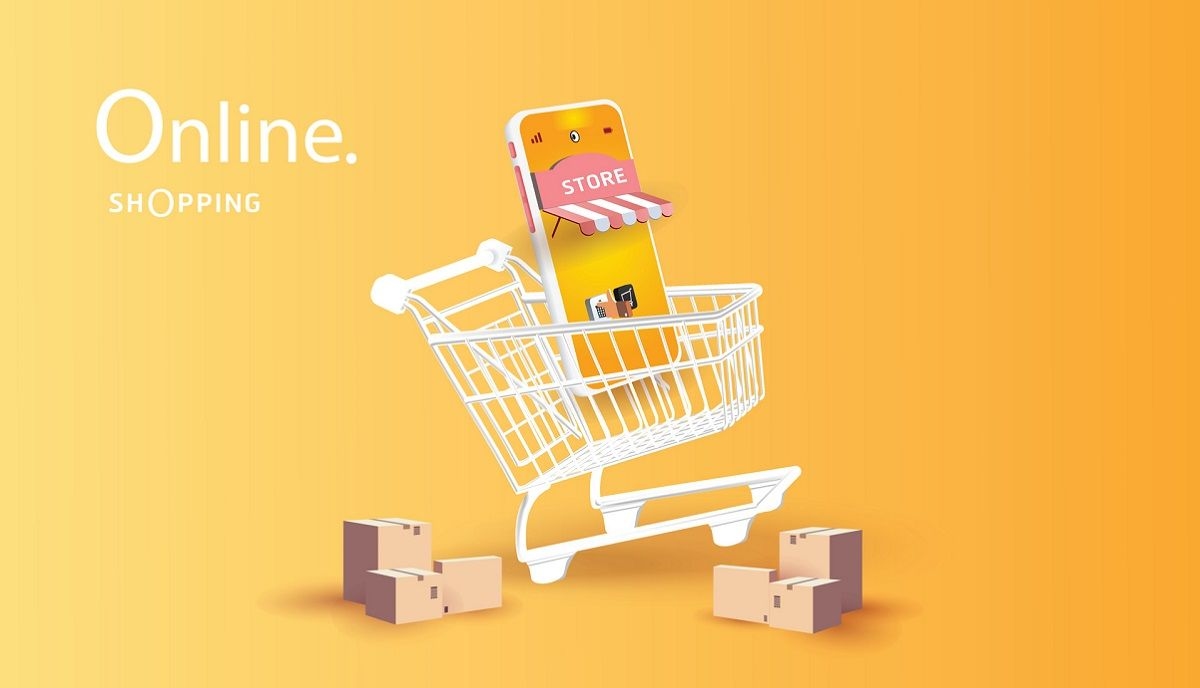Loyalty
How to Start an Ecommerce Business in 6 Steps: 2023 Guide
The ecommerce industry has experienced exponential growth over the years, and the trend is set to continue. Th...


Weekly newsletter
No spam. Just the latest releases and tips, interesting articles, and exclusive interviews in your inbox every week.
Tags
Business Growth
Authors
Daniela Andreevska
Daniela has 6 years of experience in digital marketing for ecommerce businesses.
Aws Alnabulsi
Aws is the Co-Founder of Coretava, a complete retail ecommerce growth platform. He has 6+ years of experience in managing and growing ecommerce businesses.
Carlos Guerberoff
Head de Parcerias na Coretava. Especialista em desenvolver e fortalecer relacionamentos estratégicos. Orientado para resultados e apaixonado por construir conexões duradouras.
Henrique Letoldo
Head of Sales na Coretava. Com vasta experiência em liderança de equipes comerciais, busca constantemente impulsionar o crescimento e maximizar resultados. Apaixonado por inovação e estratégias de vendas eficazes.
Aws Alnabulsi
CEO e fundador da Coretava. Visionário e empreendedor apaixonado, lidera a equipe com visão estratégica e inovação, buscando transformar o varejo através de soluções tecnológicas.
The ecommerce industry has experienced exponential growth over the years, and the trend is set to continue. This opens a lot of new opportunities both for existing brick and mortar stores who want to start selling online and for entrepreneurs with exciting online business ideas.
However, starting an ecommerce business that generates revenue can sound daunting, especially for beginners with no previous experience in online sales. The process involves creating a sound ecommerce business plan and prioritizing resources amid a plethora of ecommerce jargon and requirements.
At Coretava, we know the intricacies and challenges of establishing and growing an ecommerce business. That's why we offer comprehensive services that cater to the needs of both new and established businesses. Our suite of products will help you boost customer loyalty and retention, optimize marketing, implement personalization, and provide a phygital experience. We’ll help you bring your innovative ecommerce business ideas to fruition.
Table of Contents
- What Is an Ecommerce Business?
- What Types of Ecommerce Businesses Are There?
- How to Start a Successful Ecommerce Business in 6 Steps
- Starting an Ecommerce Business in 2023
- Ecommerce Business FAQs
What Is Ecommerce Business?
Ecommerce has transformed the way businesses sell and consumers buy goods and services creating a whole new space for commercial transactions, with its own peculiarities as well as pros and cons.
What Is Ecommerce?
Ecommerce is short for electronic commerce. To put it simply, it's any internet business transaction. Everything from making purchases from online retailers like Amazon to making reservations for services like Airbnb or requesting food delivery from restaurants fall under online commerce.
Ecommerce Business Definition
Ecommerce enterprises carry out the majority of their business operations online.
From startups to renowned international corporations, ecommerce businesses sell a range of digital and tangible goods and services.
They can also have an offline or online store presence to promote their businesses. In this case, they’d need to provide an omnichannel experience to improve the customer journey and not cause confusion between online and offline experiences.
What Types of Ecommerce Businesses Are There?
Ecommerce businesses come in many shapes and sizes, catering to various customer segments and delivering value in different ways.
Ecommerce Business Models by Customer
The most common ecommerce business models based on target customers are:
- B2B: Business to business ecommerce
B2B (business to business) ecommerce targets other businesses. In essence, two businesses engage in commercial transactions.
One company acts as the vendor or supplier, while the other acts as the buyer or customer.
The transactions involved in B2B ecommerce are larger in value and involve bulk purchases, negotiated rates, and long-term contracts.
- B2C: Business to customer ecommerce
B2C (business to customer) ecommerce targets individuals or direct users. The business sells products or services directly to the end consumer.
B2C ecommerce is the most common type of ecommerce and is characterized by smaller transaction sizes, higher transaction volumes, shorter sales cycles,and extensive ecommerce marketing strategies.
- C2B: Customer to business ecommerce
C2B (customer to business) ecommerce is a type of online business where individual customers offer products or services to businesses.
Freelancers, independent contractors, or small business owners offer goods or services to larger businesses.
C2B ecommerce is usually used for specialized services that larger companies may not be able to cover in-house.
- C2C: Customer to customer ecommerce
C2C (customer to customer) ecommerce involves transactions between individual customers. It happens on online marketplaces such as eBay or Etsy, where customers can buy and sell goods directly from and to each other.
C2C ecommerce is characterized by smaller transaction sizes and a wide range of products and services being offered.
Ecommerce Business Models by Value Delivery
Ecommerce companies employ several strategies to offer value or fulfill orders to their clients.
- Private labeling ecommerce business
Private labeling ecommerce business is designing your own branded products and selling them through your online store.
- White labeling ecommerce business
Selling products made by another company under your own branding and packaging through an online store is known as white labeling.
- Wholesaling ecommerce business
Instead of selling products directly to customers, a wholesale ecommerce business sells huge volumes of goods to retailers or other businesses.
- Dropshipping ecommerce business
Through dropshipping, an online store operates as a middleman between the manufacturer and the client, offering goods that were produced and delivered by a different company.
- Subscription based ecommerce business
A subscription-based ecommerce company sells goods or services on a recurrent basis, generally using a monthly or yearly subscription model.
How to Start a Successful Ecommerce Business in 6 Steps
A new e-commerce venture can be both thrilling and overwhelming, but with a good ecommerce business insurance, a strong ecommerce business name, and the correct strategy, you can position yourself for success.
Here are the 6 steps you need to take on how to start an ecommerce business from scratch:
1. Choose your market niche and product line.
The first step in creating a successful online store is choosing a market segment that you are enthusiastic about and figuring out which products will do well there. Will you be a B2B or a B2C? Or a more personal C2C?
Consider your passions, interests, and areas of competence as a starting point for selecting your specialty. This helps to pinpoint a market in which you can use your skills and background to develop a distinctive selling proposal.
Research your competition and potential clients after you've determined your specialization. Find market gaps that your products can cover and analyze your customers' needs, preferences, and behavior.
Conduct keyword research and make use of resources like Google Trends and Amazon Best Sellers to find popular products and market trends in your niche.
2. Conduct market research and competitive analysis.
Select a niche and find things that will sell well in that market if you want to launch a successful online store.
Making informed decisions about product selection, pricing, and marketing tactics requires conducting market research and competitive analysis.
Start constructing a strong brand identity and a user-friendly website with an easy checkout procedure once you have a good understanding of your target demographic and competitors.
Offer exceptional customer service and optimize your website for mobile devices. Build an online presence through social media and search engine optimization.
3. Craft your business plan and ecommerce store.
You can establish your brand, describe your objectives, and lay out a successful strategy with the help of a strong business plan.
The specifics of your product offers, target market, pricing strategy, and ecommerce marketing plan should all be included in your business plan. A summary of your business's operations, including logistics and fulfillment, should also be included.
Work on financial estimates that will serve as your road map when you explore the nuances of the ecommerce sector.
An online store's setup procedure is equally crucial. And your website should be user-friendly, attractive, and conversion-optimized because it acts as your online showroom.
Pay attention to every detail, such as the structure and style, as well as the customer support and checkout procedures.
4. Build your inventory and establish your supply chain.
Decide on the products you want to offer and locate them from reliable vendors to begin building your inventory. While choosing your suppliers, be sure to keep things like product quality, cost, and shipping in mind.
You might also think about dropshipping, which enables you to sell goods without keeping inventory.
Make sure that your items are delivered to your consumers quickly and effectively and build a trustworthy supply chain. Work with your suppliers to determine the most affordable and dependable shipping and delivery options.
If you're sourcing goods overseas, take import/export laws and customs into account.
5. Develop marketing and customer acquisition strategies.
Any ecommerce business must have an effective marketing strategy in place to be successful. You can use a variety of platforms to boost brand recognition and reach a bigger audience with social media marketing.
Increase the visibility of your website and its placement in search engine results pages with search engine optimization (SEO).
Add relevant keywords to your website's content and ensure all of its technical aspects are optimized.
6. Use the best ecommerce business apps.
Coretava offers a suite of ecommerce products to improve the performance and customer experience of ecommerce businesses.
Core Marketing helps attract and engage customers through personalized pop ups, email campaigns, SMSs, and gamification features that will get customers more engaged than ever.
Core Personalization allows for creating a customized shopping experience, increasing the likelihood of purchasing, and pushing up the value of an average sale.
Core Loyalty helps ecommerce businesses create rewards programs that incentivize repeat purchases and turn loyal customers into brand ambassadors.
Finally, Core Omnichannel creates a seamless shopping experience across all channels, including websites and physical stores.
The Coretava business apps can help you enhance your business performance, build brand loyalty, and achieve your goals.
Starting an Ecommerce Business in 2023
If done properly, launching an e-commerce firm in 2023 may be a satisfying and lucrative endeavor.
The correct niche must be chosen, market research must be done, a sound company strategy must be created, inventory must be built, and successful marketing methods must be used.
Getting access to the appropriate ecommerce software and solutions can dramatically raise the effectiveness and performance of your company.
Core Marketing, Core Personalization, Core Loyalty, and Core Omnichannel from Coretava's array of ecommerce apps helps increase brand loyalty, improve business performance, and more.
Don't pass up the opportunity to use Coretava to grow your e-commerce operation.
Ecommerce Business FAQs
Ecommerce businesses have become increasingly popular in recent years, but many entrepreneurs still have questions about how to start one.
Let’s take a look at the frequently asked questions on how to start an ecommerce business:
What Are the Best Ecommerce Platforms for Small Business?
Shopify is simple to use, scalable, and offers a number of tools to support the growth of small businesses. WooCommerce, Magento, Zid, Salesforce, Nuvemshop and Volusion are Shopify alternatives with their own advantages and disadvantages.
The ideal platform for your small business will depend on your unique requirements and financial constraints.
How to Start an Ecommerce Business Without Inventory?
Dropshipping is one method for starting an ecommerce business without inventory, in which you collaborate with a supplier who handles inventory and shipping for you.
A different choice is to provide digital goods or services that don't need physical stock.
How to Start an Ecommerce Business With No Money?
Although difficult, starting an online store without any money is not impossible.
Using free or inexpensive tools, working from home, and avoiding unnecessary expenditures are all crucial ways to keep costs down. You may start an ecommerce business with little to no money if you're creative and resourceful with free tools or plugins and the best Shopify apps already available online.
How to Start an Ecommerce Dropship Business?
To start an ecommerce dropshipping business, you need to find a dependable supplier who will manage the inventory and shipment for you.
Next, you need to build up your online store, integrate it with your supplier's inventory management system, and begin promoting your products once you've determined your niche.
How Long Does It Take to Start an Ecommerce Business?
The length of time it takes to launch an ecommerce website varies on a number of factors like your business strategy, how quickly you can find products, and put up your website.
An ecommerce company may often be launched in a few weeks or months.
How Much Money Do You Need to Start an Ecommerce Business?
The amount of capital you need may vary based on your business concept, products, and marketing plan.
It's advised to have $5,000 to $10,000 on hand to pay for things like website construction, inventory purchases, and marketing fees. But depending on unique circumstances, the precise amount required could change.
Related Posts

Ready to Transform Your Retail Strategy?
Get a personalized consultation with our retail AI experts
Resources
Contact Us
+1 (415) 830-3900
info@coretava.com
Location
São Paulo, Brazil


